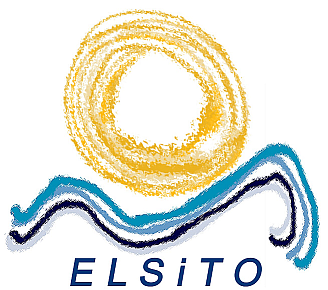Aims
Aims of ELSITO
The following are the General Objectives and Specific Aims of ELSITO as stated in the document presented to the Grundtvig Life Long Learning Programme
General Objectives
– To empower service users (adults facing social exclusion due to mental health problems, learning disabilities (mental retardation), and/or adults who are refugees) to develop the skills and competences to participate in community based and developed activities (occupations), especially work activities.
-The identification and development of pedagogical strategies for collaborative learning between service users and staff which underpins empowerment leading to participation in community activities, through an experiential and reflective process including both learners and staff/trainers/occupational therapists from a number of European countries enabling exploration of contextual variations
-To create a European network to exchange practices and experiences between all stakeholders, (including service users, occupational therapists and other staff) involved in the development of community based initiatives that provide opportunity for participation in occupations, and particularly access to the labour market.
Specifically the partnership aims to –
1) Promote individual empowerment through providing opportunities for service users to share, promote and advocate for their experiences of participating in local, community based projects to a wider, international audience. The projects include a range of community based programmes which provide work, social and/or recreational opportunities for the service users.
This will include:
– The development of service users skills and competences a) for international mobility, b) for presentations to public and professional audiences, c) for participation in related discussion groups and promotional activities, including organizational aspects
– The development of client’s narratives regarding their recovery process. These will be disseminated via the website and also during mobilities and dissemination activities
This will enable:
Personal development – confidence, motivation, self-respect, self-identity, organizational skills, independence and taking the initiative,
Development of employment and other skills – use of information technology for presentations and communication (including skype, email), presentation skills, group interaction skills, second language skills (the language of the mobilities will be English and service users will participate in basic language preparation prior to their participation in mobilities).
2) Identify the pedagogical approaches that constitute collaborative learning between service users and staff leading to the empowerment of service users for participation in economic, social and civic activities in the community.
This will include:
– Exchange of good practice during mobilities, through visits and meetings including service users and staff. Good practice is that which incorporates community participation in social and economic activities, while particular emphasis will be given to the exploration of innovative practice, including social enterprises
– Ongoing reporting of the process of project development between members of the partnership, regarding both new and established projects.
– Identification and development of staff (particularly occupational therapists’) competences required to enable collaborative learning
– Development of clients’ narratives regarding their recovery experiences
– Identification of pedagogical approaches that contribute to good practice throughout Europe, through a European survey, discussions and critical review by service users and staff, peer review by European experts. It is anticipated that this will include:
-identifying issues related to
contextual and cultural differences,
– identifying essential competences and skills of staff and service
users
– identifying essential stakeholders including political and funding
bodies
– Dissemination of results through a website and booklet
3) Develop a network for all stakeholders, including service users and professionals, involved in community projects throughout Europe for the exchange of good practice, communication and facilitation of emerging projects.
This will include:
– Promotion and dissemination at local, national and European
levels
– Development of a website (containing examples of good practice,
pedagogical strategies, service users’ narratives, ongoing information
on the learning partnership). The website will be developed and
maintained by learners (service users) together with staff
– Preparation of a booklet acting as an introduction to the learning
partnership and the website. The booklet will also available as CD Rom
which will include extended materials from the website.
